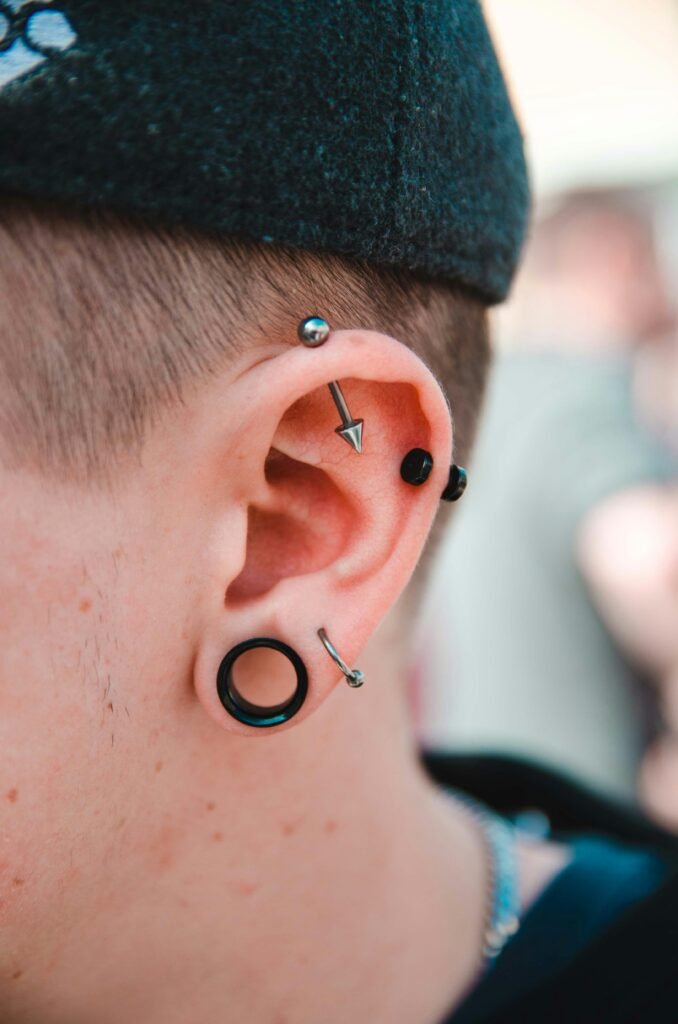So, you’ve heard that Alicia is considering getting her tongue pierced, huh? Well, before Alicia takes the plunge into this trendy body modification, there are a few important health risks she should keep in mind. While tongue piercings may seem like a fun and exciting way to express oneself, it’s crucial to be aware of the potential complications that can arise. In this article, we’ll explore the health risks associated with tongue piercings and why Alicia should tread carefully before making her decision.

Read More Information at Health Joy
Infection
When considering getting a tongue piercing, it’s important to be aware of the potential risks of infection. Bacterial infection is one of the primary concerns. The mouth contains numerous bacteria, and when a piercing is done, these bacteria can enter the open wound and lead to infection. It is crucial to maintain proper oral hygiene and keep the piercing clean to minimize the risk of bacterial infection.
In addition to bacterial infection, there is also a risk of viral infection. Viruses such as hepatitis B and hepatitis C can be transmitted through the use of unsterilized equipment during the piercing process. It is essential to seek out a reputable piercing professional who follows strict sterilization procedures to reduce the risk of viral infection.
Another type of infection that could occur is a fungal infection. Fungal infections are often caused by the overgrowth of naturally occurring fungi in the mouth. These infections can be particularly challenging to treat and may require antifungal medications. To minimize the risk of fungal infection, it’s crucial to maintain a clean and healthy oral environment and practice good oral hygiene habits.
Swelling and Pain
After getting a tongue piercing, it is normal to experience swelling. This swelling can be a result of the body’s natural healing response to the injury caused by the piercing. The tongue is a highly vascular organ, meaning it has a significant blood supply, which can contribute to swelling. While some swelling is expected, it’s important to monitor it and seek medical attention if it becomes excessive or leads to difficulty breathing or swallowing.
In addition to swelling, there may be prolonged pain associated with a tongue piercing. The tongue is a sensitive area, and the process of piercing it can be uncomfortable. It is normal to experience some discomfort during the initial healing period. However, persistent or severe pain may indicate an underlying issue such as infection or nerve damage and should be evaluated by a healthcare professional.

Read More Information at Health Joy
Bleeding
During and after the tongue piercing process, some bleeding is to be expected. The tongue is a highly vascular part of the body, meaning it has many blood vessels, which can lead to bleeding during the piercing procedure. While the bleeding should subside relatively quickly, it’s important to follow proper aftercare instructions provided by the piercing professional to minimize the risk of prolonged bleeding or infection.
Excessive bleeding is a potential risk associated with tongue piercings. If the bleeding does not stop or if it is severe, immediate medical attention should be sought. Excessive bleeding can indicate damage to blood vessels or may be a sign of an underlying bleeding disorder. It is crucial to prioritize your health and safety and seek prompt medical attention if bleeding is a concern.
Nerve Damage
Getting a tongue piercing carries the risk of nerve damage. The tongue is innervated by various nerves that control movement, sensation, and taste. During the piercing process, these nerves can be damaged or irritated, leading to altered sensation or numbness in the tongue. While this is usually temporary and resolves over time, there is a possibility of permanent nerve damage.
If you notice persistent numbness or loss of sensation in your tongue after getting a piercing, it is important to consult a healthcare professional. They can assess the extent of the nerve damage and provide appropriate guidance. It is crucial to communicate any unusual sensations or changes in your mouth to ensure your overall oral health.

Speech and Eating Difficulties
Following a tongue piercing, it is common to experience temporary difficulty in speaking clearly. The presence of jewelry in the mouth can affect the movement and placement of the tongue, leading to changes in speech patterns. This typically resolves as the tongue adjusts to the presence of the piercing and the initial swelling subsides.
Eating and swallowing may also present challenges initially. The tongue plays a crucial role in both chewing and swallowing food, and a tongue piercing can disrupt these processes. It is important to start with a soft diet and take small, manageable bites to reduce the risk of discomfort or injury. Over time, as the tongue gets accustomed to the piercing, these challenges should diminish.
Migration or Rejection
Migration of the jewelry within the tongue is a possible complication of tongue piercings. The tongue is a mobile organ, constantly in motion during speech, eating, and swallowing. This movement, along with factors such as improper placement or inadequate jewelry, can cause the piercing to migrate or move from its original position. Migration can lead to discomfort, irritation, and potentially increased risk of infection.
Another risk associated with tongue piercings is rejection by the body’s immune system. The body may recognize the piercing as a foreign object and attempt to expel it. This rejection can result in the jewelry being pushed out of the tongue or cause the tissue around the piercing to become inflamed. It is crucial to monitor the piercing for signs of rejection, such as increased redness, swelling, or pain, and seek appropriate medical attention if these symptoms arise.
Damage to Teeth and Gums
Tongue piercings can potentially cause damage to teeth and gums. The jewelry, particularly if it rubs against the teeth, can lead to chipped or cracked teeth. The pressure exerted by the jewelry can weaken the enamel and structure of the teeth, increasing the risk of dental damage. The constant contact between the jewelry and the gums can also contribute to gum recession or damage, potentially leading to periodontal problems.
To minimize the risk of dental complications, it is important to choose appropriate jewelry that does not pose a significant threat to the teeth and gums. Regular dental check-ups and maintaining good oral hygiene practices, such as brushing and flossing, can also help mitigate potential damage.
Oral Health Issues
Tongue piercings can have an impact on oral health, leading to increased plaque formation. The presence of jewelry in the mouth makes it more difficult to effectively clean the surface of the tongue, potentially resulting in plaque buildup. Increased plaque can contribute to dental decay, gum inflammation, and other oral health issues.
Gum inflammation or infection is another potential oral health issue associated with tongue piercings. The constant presence of a foreign object in the mouth can irritate the gums and increase the risk of gum disease. It is essential to maintain excellent oral hygiene practices and regularly visit a dentist or dental hygienist to monitor and address any oral health concerns.
Allergies or Sensitivity
Individuals considering a tongue piercing should be aware of the risk of allergic reactions to jewelry materials. Certain metals, such as nickel or cobalt, can trigger allergic responses in some individuals. Allergic reactions can manifest as redness, swelling, itching, or even blistering around the piercing site. It is important to choose hypoallergenic jewelry to minimize the risk of allergic reactions.
In addition to allergies, some people may experience sensitivity to metal in the mouth. This sensitivity can result in discomfort or irritation around the piercing site. It is important to monitor any symptoms of sensitivity and consult with a healthcare professional if they persist or worsen.
Delayed Healing and Scar Tissue
The healing process following a tongue piercing can vary from person to person. While some individuals may experience a smooth healing process, others may encounter delays. Factors such as overall health, oral hygiene, and lifestyle choices can influence the healing time. It is crucial to be patient and diligent in following aftercare instructions provided by a professional piercer.
During the healing process, it is common for scar tissue to form around the piercing. Scar tissue is a natural part of the healing process, and its formation is the body’s way of repairing the injury caused by the piercing. However, excessive scar tissue or keloid formation may occur in some individuals. If you notice abnormal scarring or experience discomfort related to scar tissue, seeking medical advice is recommended.
Conclusion
If Alicia is thinking of getting her tongue pierced, she should keep several health risks in mind. Infection, swelling, pain, bleeding, nerve damage, speech and eating difficulties, migration or rejection, damage to teeth and gums, oral health issues, allergies or sensitivity, delayed healing, and scar tissue formation are all potential concerns. It is crucial for Alicia to be well-informed about these risks and to consult with a reputable piercer who can provide thorough aftercare instructions. Additionally, maintaining good oral hygiene practices and seeking prompt medical attention for any concerning symptoms will help ensure a positive piercing experience and reduce the likelihood of complications.








